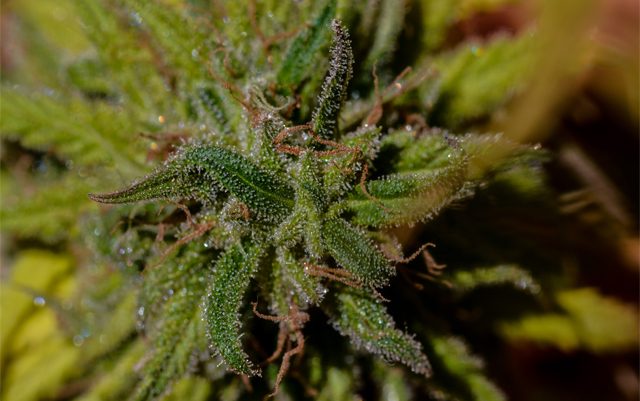After a five year struggle, researchers finally got approval from the Drug Enforcement Administration last spring to study the use of medical marijuana to treat post-traumatic stress disorder. Now, almost a year later, they have just received their first supply of government grown cannabis. Unfortunately, the bud they received doesn’t exactly live up to expectations – and they are not even sure that they should be using it at all.
“Scientists want to do real world studies,” Sisley told ATTN:. “We want to imitate what patients are using day-to-day in the real world, and right now we can’t with the current study drug supply.”
When you think of medical marijuana you probably have a good idea of what to expect. States like California and Colorado have set high standards when it comes to what is considered “quality” medical cannabis. The bud supplied by the federal government, grown at the University of Mississippi, didn’t come close to looking or smelling like what you would expect, let alone testing at comparable THC levels.
“That is, flat out, not a usable form of cannabis. In two decades of smoking weed, I’ve never seen anything that looks like that,” Cannabis expert Jake Browne said. “People typically smoke the flower of the plant, but here you can clearly see stems and leaves in there as well, parts that should be discarded. Inhaling that would be like eating an apple, including the seeds inside it and the branch it grew on.”
In fact, the cannabis they were provided was filled with stems and leaf trimmings that were ground up with the bud – definitely not something you would find on the shelf of a medical marijuana dispensary in any state. Plus, while the labs at the University of Mississippi claimed that the THC content was 13%, when tested by Sisley’s team they found that there was barely 8% THC – which is far less than the average medical strain in the U.S.
“We waited 20 months to get going, and then we got this sub-optimal study drug,” Sisley says. “The longer we allow this monopoly to continue, the more efficacy [of the] research will continue to be thwarted.”
When you’ve waited years just to get approval, and months afterward before you are actually presented with the drug you are supposed to study, you would expect that you are getting a high-quality product to get the best, most accurate results possible. Instead, in this case, it’s clear the government doesn’t have the first clue on how to grow medical marijuana – and since obtaining it from state-legal dispensaries is not an option, the team is attempting to get approval to grow their own cannabis until the growers at University of Mississippi get it together and provide a better harvest.






